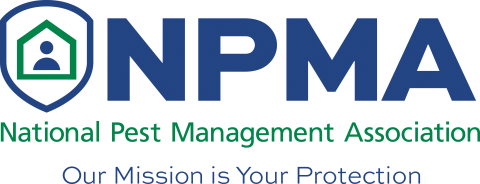Native Stinging Insects Pose Greater Threat to Americans than Invasive “Murder Hornets”
Native Stinging Insects Pose Greater Threat to Americans than Invasive “Murder Hornets”
The National Pest Management Association warns of the health threats stinging insects pose this summer
FAIRFAX, Va.--(BUSINESS WIRE)--In recent months, reports of “murder hornets” suddenly appearing in the U.S. set off widespread panic about the newfound invasive species, known for decimating local honey bee colonies and capable of causing human fatalities in extreme cases. Officially named the Asian giant hornet, the few confirmed U.S. sightings have so far been limited to Washington state where local prevention efforts are already underway. Although the Asian giant hornet may not pose a significant threat to most Americans, especially those living outside the Pacific Northwest, the National Pest Management Association (NPMA) is reminding the public about the serious health threats that native stinging insects such as wasps and yellowjackets pose to the entire country.
“In the U.S. alone, stinging insects send more than 500,000 people to the emergency room every year,” said Jim Fredericks, Ph.D., chief entomologist for the National Pest Management Association. “Well-established species such as the bald-faced hornet and yellowjacket can be territorial and aggressive, and have been known to attack in large numbers, stinging repeatedly to stun their victims. While they may be small in size, stinging insects can pose serious health threats and should be treated with extreme caution.”
A number of different stinging insects serve as important pollinators for the environment. However, when they build nests on our properties or inside wall voids in our homes, they can cause costly damage and become a health threat, especially for those that are allergic to them.
If a nest is discovered, homeowners should contact a licensed pest control professional to evaluate the situation and effectively remove the nest. “Removing a stinging insect nest is certainly not a ‘do it yourself’ job and attempts to do so can be very dangerous,” said Fredericks.
Sometimes, despite our best efforts, stings still happen. If you or someone you know is stung, follow these steps:
- If stung by a bee, remove the stinger as quickly as possible to decrease the amount of venom released. Note, insects such as hornets and wasps have smooth stingers that will not detach from their bodies or get lodged in human skin.
- Clean the affected area with soap and cold water and use a cold compress to reduce swelling.
- If the person stung experiences symptoms of an allergic reaction such as tongue or throat swelling, dizziness or shortness of breath, call for emergency medical assistance immediately as this may be a sign of anaphylaxis, a life-threatening condition.
- If you or a family member have a diagnosed stinging insect allergy, NPMA’s Medical Advisor Jorge Parada urges you to carry epinephrine with you at all times and to administer as you’ve been instructed by your physician.
- If the summer stinger has a nest nearby on or inside your property, remember to call a pest control professional for prompt and proper removal.
“Unfortunately, summer and fall are prime seasons for stinging insect activity. Most hornets and wasps get even more aggressive in fall as they urgently forage for food to sustain their colonies over winter,” said Fredericks. “Keeping a good distance from stinging insects and frequently checking the property to remove nesting sites are the best ways to prevent these pest encounters.”
For more information about stinging insects, visit PestWorld.org.
About the National Pest Management Association
The NPMA, a non-profit organization with more than 5,500 members, was established in 1933 to support the pest management industry's commitment to the protection of public health, food and property from the diseases and dangers of pests. For more information, visit PestWorld.org or follow @PestWorld on Facebook, Twitter, Pinterest and YouTube.
Contacts
Logan Yu
Vault Communications, Inc.
lyu@vaultcommunications.com
(610) 455-2781
